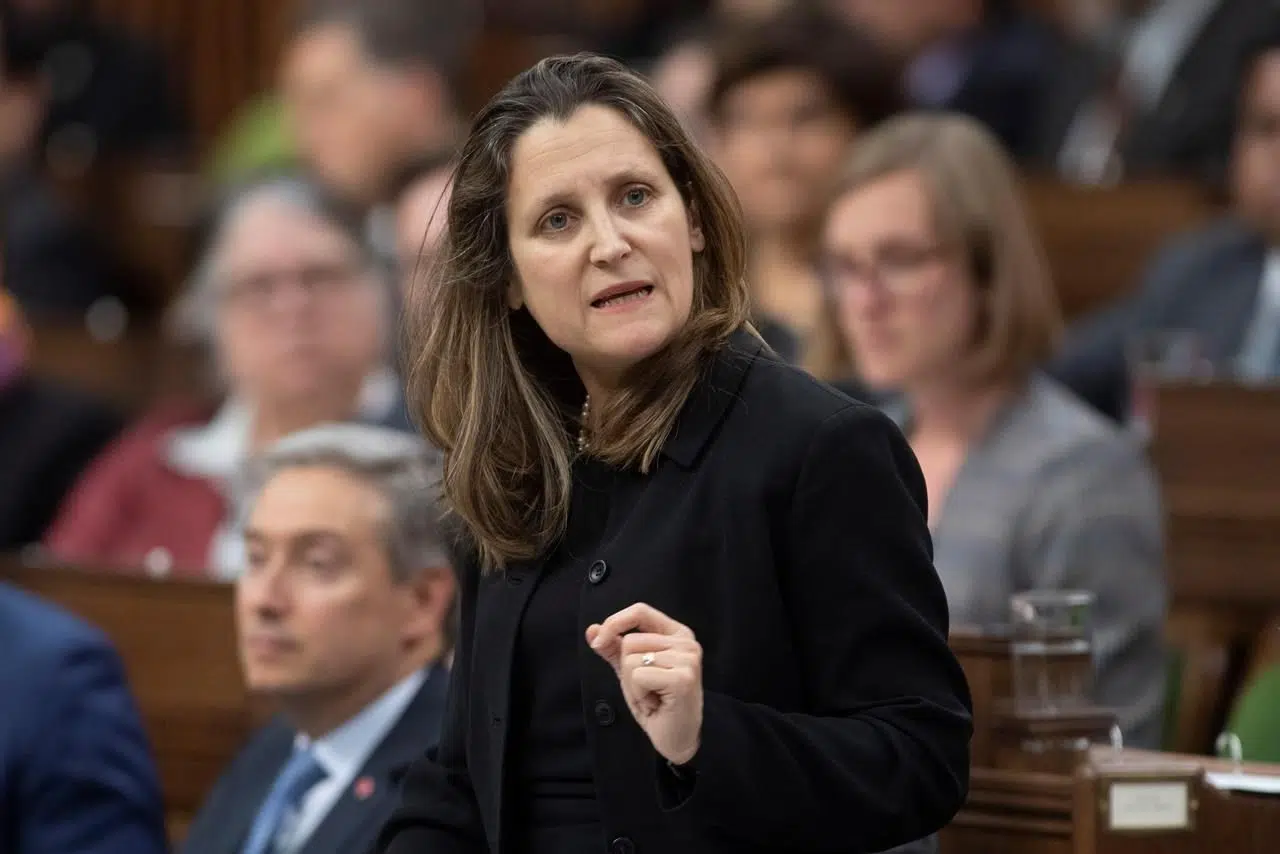The federal government released its fall economic statement Thursday, a document that predicts a budgetary surplus during the 2027-28 fiscal year.
The update projects a $36.4-billion deficit for this fiscal year. Deficits will shrink over the next four years, the document says, before a budget surplus of $4.5 billion is attained in 2027-28.
It would be the first surplus since the Liberals formed the government seven years ago.
However, it’s all dependent on how Canada navigates a possible recession. Over a six-year span, the government plans spending of $30.6 billion.
The word “inflation” appears more than 100 times in the document, according to The Canadian Press, which suggests the government’s focus.
The update tabled by Finance Minister Chrystia Freeland also includes two new measures — a tax credit for clean hydrogen production and new investment to generate growth in electric vehicle and battery manufacturing. The document says they’re both still in development.
There were details on a new tax credit for investments in clean electricity generation, energy storage systems and low-carbon heating equipment. That tax credit will cost nearly $6.7 billion over the next five years and will kick in the day the 2023 federal budget is tabled.
The fiscal update also says the government will permanently remove the interest on student loans and apprentice loans beginning April 1. That includes loans that currently are being repaid.
The collection of interest on student loans was suspended in 2021 until March of next year due to COVID-19.
The update said an average student will save $410 per year as a result of the move. Eliminating the interest is expected to cost of $2.7 billion over five years.
The update also said the government is planning to spend $1 billion in the current financial year toward provincial requests related to post-tropical storm Fiona, and $26.3 million over five years toward orders, fines and prosecutions against non-compliant trucking industry employers.
— With files from The Canadian Press







